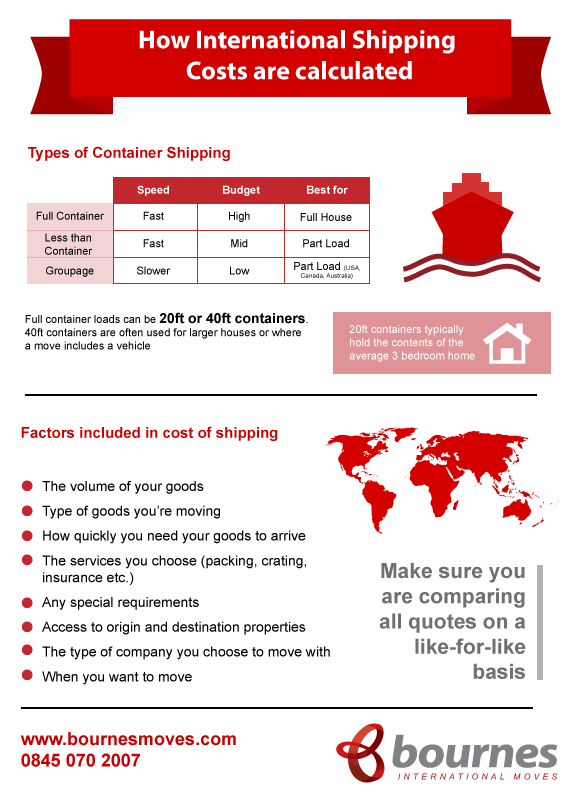
Moving abroad can be an exciting adventure, offering new cultures, experiences, and opportunities. However, before you pack your bags and embark on this journey, it’s essential to understand the financial implications involved. One of the most significant expenses associated with international relocation is the cost of moving your belongings.
This comprehensive guide will delve into the various factors that influence how much is it to move out of the country, providing you with a clear understanding of the potential costs and helping you plan your budget effectively. We’ll explore destination-specific considerations, shipping options, volume of belongings, visa requirements, and more, equipping you with the knowledge needed to make informed decisions about your international move.
International Moving Costs Factors
Several factors contribute to the overall cost of moving internationally. Understanding these factors is crucial for estimating your expenses accurately.
- Destination Country: Different countries have varying regulations, customs duties, and living costs, which directly impact moving expenses. For example, moving to a country with strict import regulations or high shipping fees will likely be more expensive than relocating to a country with simpler procedures.
- Distance Traveled: The geographical distance between your current location and your destination significantly influences transportation costs. Longer distances generally result in higher shipping fees due to increased fuel consumption and logistical complexities.
- Volume of Belongings: The amount of personal property you plan to move plays a major role in determining the cost. Moving a large household with numerous furniture pieces and appliances will be considerably more expensive than relocating with only essential items.
Destination Country Considerations

Researching your destination country’s specific regulations and requirements is crucial for budgeting accurately.
- Import Duties and Taxes: Many countries impose import duties and taxes on goods brought in from abroad. These fees can vary depending on the type of item, its value, and the country’s trade policies. It’s essential to factor these potential costs into your budget.
- Customs Regulations: Each country has unique customs regulations regarding permitted items, labeling requirements, and documentation procedures. Familiarize yourself with these regulations to avoid delays or penalties upon arrival.
- Local Moving Costs: Once you arrive at your destination, you may need to hire local movers for transportation within the city or region. Research local moving companies and obtain quotes to include these costs in your overall budget.
Distance and Shipping Options
The distance between your origin and destination significantly impacts shipping costs.
- Air Freight: Air freight is the fastest option but also the most expensive. It’s suitable for smaller shipments of valuable or time-sensitive items.
- Sea Freight: Sea freight is a more economical choice for larger shipments, as it offers lower per-unit costs. However, it takes significantly longer than air freight.
- Combination Shipping: Some moving companies offer combination shipping options, utilizing both air and sea freight to optimize cost and delivery time based on your specific needs.
Volume of Belongings

The amount of personal property you plan to move directly influences the overall cost.
- Full-Service Moving: Full-service movers handle all aspects of the relocation process, including packing, loading, transportation, and unpacking at your destination. This option is convenient but typically more expensive.
- Partial-Service Moving: Partial-service moving involves selecting specific services, such as packing or transportation only. This can be a cost-effective option if you’re comfortable handling some aspects of the move yourself.
- Shipping Containers: Shipping containers offer a flexible and affordable option for larger shipments. You can choose from various container sizes to accommodate your belongings, and they provide secure transportation.
Visa Requirements and Regulations
Obtaining the necessary visas and permits is crucial before moving abroad.
- Visa Types: Different visa categories exist depending on your purpose of relocation (e.g., work, study, retirement). Research the specific visa requirements for your destination country and ensure you meet all eligibility criteria.
- Application Process: The visa application process can be complex and time-consuming. Start the process well in advance to avoid delays. Gather all required documents, complete the application forms accurately, and pay any applicable fees.
- Legal Advice: Consulting with an immigration lawyer specializing in international relocation can provide valuable guidance and ensure you comply with all legal requirements.
Conclusion
Moving abroad is a significant undertaking that requires careful planning and financial preparation. Understanding the various factors influencing how much is it to move out of the country is essential for creating a realistic budget and ensuring a smooth transition. By researching destination-specific considerations, shipping options, volume of belongings, visa requirements, and local moving costs, you can gain a comprehensive understanding of the potential expenses involved. Remember to start planning early, gather accurate quotes from reputable moving companies, and consult with relevant professionals to navigate the complexities of international relocation successfully.
